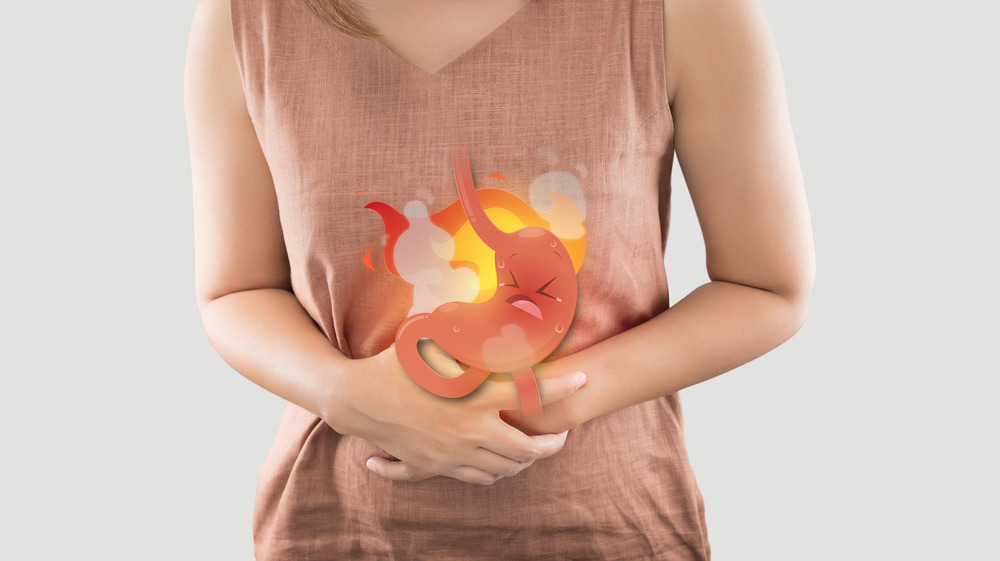Here's The Difference Between Acid Reflux And Heartburn
If you've ever had heartburn, you know how incredibly uncomfortable that sensation of pain, pressure, and burning in your chest and throat area can be. Maybe you avoid certain foods or carry around a bottle of Tums if you know you're prone to this type of reaction. But if you're experiencing heartburn on a regular basis, or if the symptoms are becoming severe, life-disrupting, or perhaps even resulting in vomiting or coughing blood, you might have a more serious, chronic condition known as acid reflux.
Now sometimes, these separate names can be confusing, because acid reflux simply means that digestive acids are backing up into the esophagus and causing irritation to the tissue in that part of the body (via MedicineNet). So heartburn, which is the pain that results from this, is simply a symptom of acid reflux. But if it only happens to you once in a while or when you eat a certain food, generally, doctors consider it to be a common and non-emergent stomach upset like any other occasional indigestion. It's when you begin to experience these symptoms regularly with worsening symtoms that a doctor may be concerned.
When to see a doctor for your acid reflux
According to Mayo Clinic, recurring or chronic acid reflux is officially known as gastroesophageal reflux disease or GERD, and common symptoms according to the medical source include: "heartburn (a burning sensation in your chest), usually after eating, which might be worse at night, chest pain, trouble swallowing, regurgitating food or sour liquid into the throat or mouth, a sensation of a lump in your throat that you can't clear, chronic cough, new or worsening asthma, disrupted sleep, and laryngitis."
GERD is caused by frequent acid reflux. According to MedicineNet, in a healthy person, when you swallow, the muscle around the bottom of your esophagus known as the lower esophageal sphincter, loosens and relaxes so that liquid or food, whatever you'e swallowing, can make its way into your stomach. Then, this muscle tightens again. If the lower esophageal sphincter relaxes too often or is weakened, then it doesn't prevent the acid and stomach contents from flowing back up into the esophagus, causing heart burn and other symptoms. If you experience these symptoms regularly or find yourself taking over the counter remedies for GERD more than twice per week, it's time to see a doctor. Sometimes medications or adjustments to your diet or lifestyle can help to alleviate symptoms of GERD.

